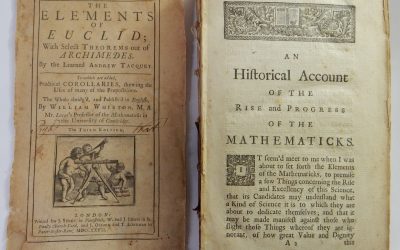By William H. Benson
The Parallel Lives
Of The NOBLE AMERICAN RELIGIOUS THINKERS AND BELIEVERS:
Roger Williams VS. Cotton Mathers
NEW ARTICLES
“Dunkirk and D-Day”
Nine months after World War II began, the German Nazi war machine drove French, British, and Belgian troops west across France into a town on the English Channel’s coast, called Dunkirk. By late May of 1940, the German army controlled almost all of France.
Those 338,000 Allied soldiers were pinned to the coast at Dunkirk. Their backs to the English Channel, they faced certain annihilation should the German army attack a final time.
Britain’s Prime Minister Winston Churchill said that, “The whole root and core and brain of the British Army . . . seemed about to perish upon the field or to be led into an ignominious and starving captivity.”
With this catastrophic situation unfolding, British, Belgian, Dutch, Canadian, Polish, and French navies brought into play a host of warships to ferry stranded soldiers from France to England, a distance of forty-four miles between Dunkirk in France, and Dover in England.
In addition, the British government requested private owners of small vessels to sail or motor across the English Channel multiple times and assist in the evacuation.
“Because of shortages of military personnel, civilian crews manned the ‘little ships at Dunkirk,’” and “The most useful were the motor lifeboats which had good capacity and speed.”
Code named Operation Dynamo, it proved successful. Between May 27 and June 4, 1940, 338,226 troops crossed the English Channel and landed at Dover.
On June 4, Winston Churchill spoke to the House of Commons, and called the Dunkirk evacuation a miracle, yet he warned, “Wars are not won by evacuation.” He also spoke of what he feared most: “We are told that Herr Hitler has a plan for invading the British Isles.”
Churchill then spoke of the “originality of malice, the ingenuity of aggression, which our enemy displays, and that we may prepare ourselves for every kind of novel stratagem.”
Yet, Churchill refused to succumb to despair. Instead, he said that he and England will fight.
Even though many of Europe’s governments “have fallen or may fall into the grip of the Gestapo and all the odious apparatus of Nazi rule, we shall not flag or fail. We shall go on to the end, we shall fight in France, we shall fight on the seas and oceans.
“We shall defend our Island, whatever the cost may be, we shall fight on the beaches, we shall fight on the landing grounds, we shall fight in the fields and in the streets, we shall fight in the hills; we shall never surrender.”
Four years passed. On Tuesday morning, June 6, 1944, D-Day, the Allies—British, American, and other armies—began Operation Overlord, the Battle of Normandy for the liberation of Nazi-occupied Western Europe.
Normandy lies south of Dunkirk, some 250 miles distant.
Led by the American general Dwight D. Eisenhower, D-Day was the largest amphibious invasion in military history. It landed 156,000 troops on Normandy’s beaches the first day.
By late August, three months later, a little over 2,000,000 Allied troops were poised to march across Europe toward Berlin to crush “the Gestapo, and all the odious apparatus of Nazi rule.”
Citizens across Europe and America celebrated Victory in Europe Day on May 8, 1945, eleven months after D-Day. Hitler was gone, and men and women whom he had shoehorned into concentration camps burst into tears of joy.
Shakespeare wrote, “The smallest worm will turn, being trodden on,” meaning that over time a worm will tact in different directions. Power structures too will shift, dependent upon force of will, ideology, resources, skill, and strategy. All worms turn, especially when stepped on.
Alex Haley and Roots
Roots, by Alex Haley, the television miniseries, aired over eight nights, from Sunday, January 23, through Sunday, January 30, in 1977, forty-five years ago. It proved wildly successful, despite ABC executives’ fears about showing white men kidnapping, buying, selling, and whipping black men, and women.
Insurrection on the Capitol: January 6, 2021
Donald Trump lost the 2020 election on Nov. 3, 2020. Although some 74.2 million voters voted for him, 81.2 voted for Biden, a difference of over 7.0 million. Then, Biden won 306 electoral votes to Trump’s 232. Despite those facts, Donald Trump vowed he would never concede.
Stars
The one constellation I can identify without much effort is Ursa Major, “the greater or larger Bear,” or the Big Dipper, in the northern sky.
Last time in these pages, I talked about Ralph Waldo Emerson’s fruit trees, and that the wise men, who came from the east to Judea, came bearing expensive gifts, three minerals, and yet today we give three types of foods—fruits, nuts, and sweets—to our children on Christmas Day.
Fruits
In 1905, the USDA published a bulletin: Nomenclature of the Apple: A Catalog, that listed 17,000 names. After removing the duplicate names, it still listed 14,000 different varieties of the apple.
Between Captain John Smith in Jamestown, Virginia, in 1607, and the beginning of the 20th century,
A look at the amendments of the U.S. Constitution
On Sept. 25, 1789, James Madison submitted 12 amendments to the new Constitution. This is the story of what happened to those amendments.
Milton Hershey School, part II
Last time in these pages I began a review of a recent book, Invisible Child: Poverty, Survival and Hope in an American City. Its author, Andrea Elliott, focused on a middle school girl named Dasani, who grew up in a series of New York City housing projects, a step away from homelessness.
After Elliott published an expose in the New York Times on Dasani’s plight, the girl was awarded a scholarship to attend Milton Hershey’s middle school, in Hershey, Pennsylvania. She arrived at the private school in late January of 2015, as a 14-year-old African-American girl, lonely and scared.
Older Posts
Milton Hershey School
Earlier this month, a New York Times reporter named Andrea Elliott published a book, Invisible Child: Poverty, Survival and Hope in an American City.
In the book, Andrea delves into the life of a family: Chanel, the mother; Supreme, her husband; and her seven children. In 2012, the family resided in a single room in the Auburn Family Residence, in Brooklyn, New York.
Andrea started her investigative reporting on the city’s poor and destitute by drifting around the Auburn’s front door. In October of 2012, she met Chanel, whose seven children would follow her out the building and down the sidewalk. The family soon let Andrea into their home, via the fire escape.
Tuskegee University
Tuskegee UniversityTuskegee University is a “private, historically black, land-grant university” in east central Alabama, with an endowment of $129 million, as of 2019. That same year 2,876 students were enrolled, and of those, 2,379 were black. Of the 560 degrees...
Smallpox
Called “the most dreadful scourge of the human species,” smallpox begins with fever, muscle pain, headache, and fatigue. Days later lesions will appear first inside the mouth and on the tongue, and later, lesions will attack the skin on forehead, face, trunk, and arms.
The Road to 9-11
During the 1990’s, the Clinton administration received sufficient warnings that Osama bin Laden’s terrorist organization, al-Qaeda, intended to continue to carry out attacks upon U. S. citizens and their property, by enlisting suicide bombers.
Afghanistan
The United States will depart Afghanistan on Aug. 31, after almost 20 years of nation-building, the most recent foreign power to surrender that harsh, cold, Himalayan terrain, “the graveyard of empires,” back to the Afghan people.
The British tried three times to tame the poor but fierce Afghan fighters. In the first Afghan War, 1839-1840,
Euclid’s Elements
The Greek mathematician Euclid, who wrote Elements of Geometry, “the most successful textbook of all time,” around 300 BCE, in Alexandria, in Egypt, in northern Africa. Lincoln though took to heart Euclid’s talent for making sense out of the bewildering. Euclid started with 35 definitions, a handful of postulates, a dozen or more axioms, a series of postulates, and argued for a set of theorems, all about triangles, lines, angles, squares, and circles.

One of University of Northern Colorado’s 2020 Honored Alumni
William H. Benson
Local has provided scholarships for history students for 15 years
A Sterling resident is among five alumni selected to be recognized this year by the University of Northern Colorado. Bill Benson is one of college’s 2020 Honored Alumni.
Each year UNC honors alumni in recognition for their outstanding contributions to the college, their profession and their community. This year’s honorees were to be recognized at an awards ceremony on March 27, but due to the COVID-19 outbreak that event has been cancelled. Instead UNC will recognize the honorees in the fall during homecoming Oct. 10 and 11……
Newspaper Columns
The Duodecimal System
For centuries, the ancient Romans calculated sums with their clunky numerals: I, V, X, L, C, D, and M; or one, five, ten, 50, 100, 500, and 1,000. They knew nothing better.
The Thirteenth Amendment
On Jan. 1, 1863, President Abraham Lincoln signed the Emancipation Proclamation, and by it, he declared that “all persons held as slaves” within the rebellious states “are and henceforward shall be free.” Lincoln’s Proclamation freed some 3.1 million slaves within the Confederacy.
The Fourteenth Amendment
After Congress and enough states ratified the thirteenth amendment that terminated slavery, Congress passed the Civil Rights Act of 1866. This law declared that “all people born in the United States are entitled to be citizens, without regard to race, color, or previous condition of slavery or involuntary servitude.” The Act equated birth to citizenship.
The New-York Packet and the Constitution
Jill Lepore, the Harvard historian, published her newest book a month ago, These Truths: A History of the United States. In a short introduction, she describes in detail the Oct. 30, 1787 edition of a semi-weekly newspaper, The New-York Packet.
Mr. Benson’s writings on the U.S. Constitution are a great addition to the South Platte Sentinel. Its inspiring to see the history of the highest laws of this country passed on to others.
– Richard Hogan
Mr. Benson, I cannot thank you enough for this scholarship. As a first-generation college student, the prospect of finding a way to afford college is a very daunting one. Thanks to your generous donation, my dream of attending UNC and continuing my success here is far more achievable
– Cedric Sage Nixon
Donec bibendum tortor non vestibulum dapibus. Cras id tempor risus. Curabitur eu dui pellentesque, pharetra purus viverra.
– Extra Times
FUTURE BOOKS
- Thomas Paine vs. George Whitefield
- Ralph Waldo Emerson vs. Joseph Smith
- William James vs. Mary Baker Eddy
- Mark Twain vs. Billy Graham
- Henry Louis Mencken vs. Jim Bakker










